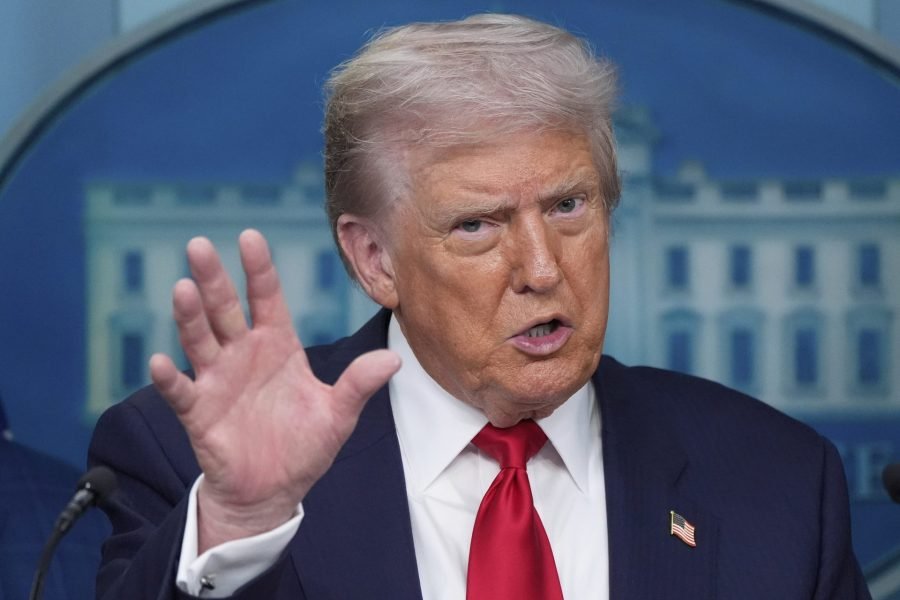Washington, D.C., 2025 — In a significant move to maintain economic stability, President Donald Trump announced an extension of the ongoing trade ceasefire with China for an additional 90 days. This temporary pause aims to avert a potentially damaging confrontation between the two largest economies in the world.
Trump shared the news on his Truth Social platform, confirming the executive order’s enactment while stating that “all other elements of the Agreement will remain the same.” The initial deadline, set for 12:01 a.m. Tuesday, could have triggered an escalation in tariffs — potentially increasing U.S. taxes on Chinese imports from already elevated rates of 30%. In retaliation, China was expected to impose higher tariffs on American exports.
The extension allows both nations to resolve lingering disputes, with the hope of paving the way for a summit later this year between Trump and Chinese President Xi Jinping. U.S. businesses with operations in China have welcomed this development, as it grants critical breathing room for trade negotiations.
Sean Stein, President of the U.S.-China Business Council, emphasized the importance of the extension, stating it is “vital” for the two governments to craft a trade agreement. Such a pact could improve market access for U.S. companies in China, providing the predictability needed for long-term planning.
“Establishing an agreement on fentanyl, which could lead to a decrease in U.S. tariffs and the reduction of China’s retaliatory measures, is urgently needed to revive U.S. agriculture and energy exports,” Stein added.
For Trump, resolving trade issues with China remains an unfinished agenda, marked by his administration’s aggressive approach that has transformed the U.S. from a relatively open market to a more protectionist environment. Tariffs have surged from around 2.5% at the beginning of the year to an average of 18.6%, marking the highest level since 1933, according to Yale University’s Budget Lab.
China has challenged the effectiveness of U.S. trade policies, which largely focus on utilizing tariffs to enforce concessions. Beijing responded with its strategies, including restricting access to crucial rare earth elements and magnets vital for industries ranging from electric vehicles to aerospace.
In June, both countries made strides toward easing tensions by reaching an agreement that lifted strict export restrictions on certain technologies and improved access to rare earths for American firms.
“The U.S. has come to recognize that it cannot exert unilateral pressure indefinitely,” noted Claire Reade, a senior counsel at Arnold & Porter and former assistant U.S. trade representative for China affairs.
In May, the two nations narrowly avoided a financial crisis, as both parties agreed to revert massive tariffs that had soared as high as 145% against Chinese products and 125% on U.S. goods, causing severe market instability. The outcome was a temporary resolution, with tariffs remaining high yet at manageable levels.
Despite both nations demonstrating the capacity to inflict economic damage upon each other, ongoing dialogues have continued. “The administration’s over-reliance on steep tariffs has revealed the limitations of its unilateral strategies and has inadvertently empowered China to believe it has the upper hand in negotiations," commented Ali Wyne, a U.S.-China relations expert at the International Crisis Group. “The need for a trade détente is a direct result of earlier misguided approaches.”
As discussions unfold, it remains uncertain if Washington and Beijing can forge a comprehensive agreement addressing critical U.S. concerns, including lax enforcement of intellectual property protections and China’s state support policies that allegedly afford domestic companies an unfair competitive edge — issues that have substantially contributed to last year’s staggering $262 billion trade deficit.
Reade expresses skepticism regarding substantial outcomes, suggesting that any agreements may be limited to commitments like increased purchases of American soybeans and assurances about controlling chemical exports used for fentanyl production while allowing continued access to vital rare-earth supplies.
However, the tougher challenges are likely to persist. "The trade conflict is set to continue evolving for years to come," warned Jeff Moon, a former U.S. diplomat and trade official now heading the consulting firm China Moon Strategies.

